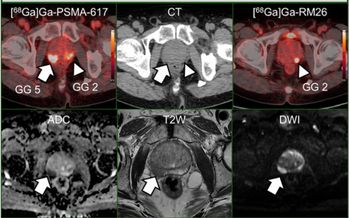
ACR wins contract to accredit government radiation oncology facilities
The U.S. Department of Veterans Affairs has awarded a three-year contract to the American College of Radiology to serve as the accrediting organization for 33 VA hospital radiation oncology facilities across the country.
The U.S. Department of Veterans Affairs has awarded a three-year contract to the American College of Radiology to serve as the accrediting organization for 33 VA hospital radiation oncology facilities across the country.
The purpose of accreditation is to set quality practice standards and certify facilities that meet them, according to Dr. Harvey Neiman, ACR executive director. The peer-reviewed assessments include an evaluation of personnel qualifications, equipment performance, and image quality, as well as standards and protocols for quality assurance and quality control.
"The ACR is extremely proud to do its part to help ensure that our nation's veterans receive the highest quality healthcare available," Neiman said.
The college brings considerable experience to the assignment. About 200 radiation oncology facilities in the U.S. have either been accredited or are going through the ACR accreditation process. As with nongovernment facilities, the accreditation process for the VA services will involve both self-assessment and independent external expert audits, based on ACR guidelines and technical standards.
ACR accreditation requires that the physicians providing radiation therapy to patients meet specific education and training standards. It also mandates that the equipment be inspected regularly by qualified medical physicists and that the radiation therapists administering the treatments be appropriately certified.
In addition to radiation oncology, the ACR manages accreditation programs for MRI, CT, nuclear medicine, PET, diagnostic ultrasound, radiation oncology, stereotactic breast biopsy, mammography, and breast ultrasound. About 16,000 facilities have earned ACR accreditation, Neiman said.
For more information from the Diagnostic Imaging archives:
Newsletter
Stay at the forefront of radiology with the Diagnostic Imaging newsletter, delivering the latest news, clinical insights, and imaging advancements for today’s radiologists.













